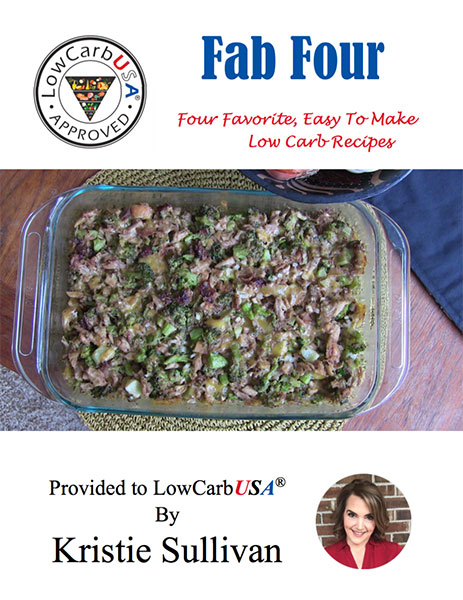Georgia Ede, MD
If you have a brain, you need to know about ketogenic diets. The fact that these specially-formulated low-carbohydrate diets have the power to stop seizures in their tracks is concrete evidence that food has a tremendous impact on brain chemistry and should inspire curiosity about how they work.
Read article
Georgia Ede, MD
Where the science stands, and what it means for you
Read article
Paul Clayton; and Judith Rowbotham
Analysis of the mid-Victorian period in the U.K. reveals that life expectancy at age 5 was as good or better than exists today, and the incidence of degenerative disease was 10% of ours. Their levels of physical activity and hence calorific intakes were approximately twice ours. They had relatively little access to alcohol and tobacco; and due to their correspondingly high intake of fruits, whole grains, oily fish and vegetables, they consumed levels of micro- and phytonutrients at approximately ten times the levels considered normal today. This paper relates the nutritional status of the mid-Victorians to their freedom from degenerative disease; and extrapolates recommendations for the cost-effective improvement of public health today.
Read article
Maryanne Demasi; Robert H Lustig; Aseem Malhotra
Emerging evidence shows that insulin resistance is the most important predictor of cardiovascular disease and type 2 diabetes.
Read article
Georgia Ede, MD
Poor cholesterol—so misunderstood. All animal cells require cholesterol for proper structure and function. The vast majority of cholesterol in the body does not come directly from foods like eggs and meat, but from the liver, which can make cholesterol out of anything we eat. So, if cholesterol-rich foods don’t cause high cholesterol, what does?
Read article
New York Times (Anahad O’Connor)
The standard approach for people with Type 1 diabetes is to match carb intake with insulin. But the argument for restricting carbs is that it keeps blood sugar more stable and requires less insulin, resulting in fewer highs and lows. The approach has not been widely studied or embraced for Type 1 diabetes, but some patients swear by it.
Read article
Dr. Mary Newport
The University of Pittsburgh will be conducting a clinical trial of the ketogenic diet to treat cancer. Here is a link with more information about the trial.
Read article
Dr. Mercola
To some, a ketogenic diet amounts to nothing less than a drug-free cancer treatment. The diet calls for eliminating carbohydrates, replacing them with healthy fats and protein. The premise is that since cancer cells need glucose to thrive, and carbohydrates turn into glucose in your body, then cutting out carbs literally starves the cancer cells.
Read article
Dr. Michael Eades
Now, all we have to do to slow the aging process is to stay in some degree of ketosis most of the time and let nature take her course and clean all the junk out of our cellular attics. How do we do that? Easy. Keep our carbohydrate intake at (or preferably below) 100 grams or so per day.
Read article
Marina M. Pearsall, MD, PhD; Gurney F Pearsall Jr, MD
Scientists from Gladstones Institutes have unearthed a specific compound that acts as “the body’s major source of energy during exercise or fasting,” says senior investigator Dr. Eric Verdin. This mechanism, known as β-hydroxybutyrate, works by blocking a chemical process that increases oxidative stress on the body’s cells.
Read article
VR Sreeraman
A novel mechanism by which a type of low-carb, low-calorie diet — called a “ketogenic diet” — could delay the effects of aging has been identified by the researchers.
Read article
Peter Attia, MD
For reasons I’m still struggling to understand, the idea of “nutritional ketosis” (NK, to be distinguished from starvation ketosis, SK or diabetic ketoacidosis, DKA) is often discussed and debated in much the same way as religion or politics. Perhaps this can be said of all nutrition, which is a shame. Nevertheless, in my continued defiance of such sensitive topics, I’d like to add another layer of complexity and nuance to this discussion.
Read article
John Erdman, Maria Oria, and Laura Pillsbury, Editors: Institute of Medicine Of The National Academies
The ketogenic diet is composed of 80–90 percent fat and provides adequate protein but limited carbohydrates (Gasior et al., 2006). In normal metabolism, carbohydrates contained in food are converted into glucose, but in the presence of carbohydrate restriction, fatty acid oxidation becomes favored, and the liver converts fat into fatty acids and ketone bodies that serve as an efficient alternative fuel for brain cells.
Read article
In 1993, 11 month old Charlie Abrahams developed difficult to control epilepsy. As a last resort, while Charlie was experiencing multiple daily seizures and multiple daily medications, his parents turned to a Ketogenic Diet for help. The diet worked. Charlie became seizure and drug free within a month. He was on the diet for five years and now eats whatever he wants. He has never had another seizure.
Read article
Florian Kugler
Last year I started a nutritional self experiment. Almost half a year later I think it’s time to share my experiences. Admittedly, I’m going on a bit of a tangent here compared to what I usually want to write about. But this journey still has its roots in something which is not so unrelated.
Read article
Kris Gunnars, BSc
Low-carb diets have been controversial for decades. They were originally demonized by fat-phobic health professionals and the media. People believed that these diets would raise cholesterol and cause heart disease because of the high fat content. However… times are changing.
Read article
Prof. Tim Noakes
It’s taken a lifetime to realise it but Professor Tim Noakes now believes the over consumption of refined carbohydrates may be toxic for the body.
Read article
« Previous
1
2

